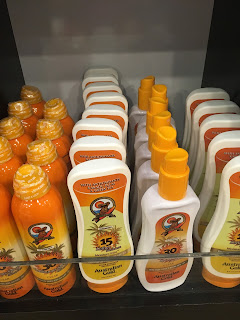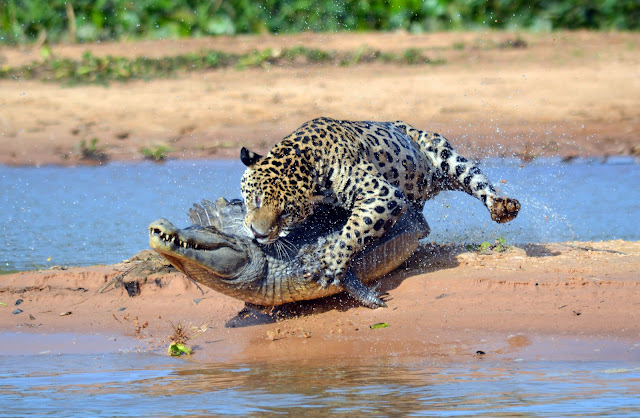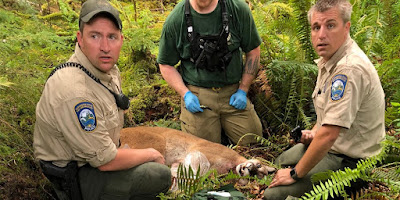Greenwashing on the Celebrity Solstice 2: seafood and sunscreen
 |
| The Celebrity Solstice sells sunscreens containing products considered to be harmful to coral reefs. |
In my last post, I defined "greenwashing." Wikipedia defines it as "...a form of spin in which green PR or green marketing is deceptively used to promote the perception that an organization's products, aims or policies are environmentally friendly."
Celebrity Cruises (actually, their parent company) has developed a relationship with the World Wildlife Fund (WWF) that has the characteristics of greenwashing.
On paper, the relationship involves improvements in carbon emissions, wild caught and farmed seafood, key food commodity procurement, and meeting general standards for sustainable tourism. There are goals set for 2020. There is no obvious barometer that gives me a hint how Celebrity is progressing toward these goals, and some evidence that indicates problem areas.
Sustainable seafood: The 2020 goal for Celebrity Cruises, negotiated with WWF, is "... to source at least 65% of global wild-caught volume from MSC certified fisheries." On this particular cruise, the Marine Stewardship Council (MSC) certified wild fish being served onboard included haddock, cod, whiting, clams, and tilapia. This list is hard to interpret. For example, only some whiting fisheries are MSC certified. Whiting is also called hake, and Celebrity serves at least 1 hake dish labeled as such (there are many fish dishes in the buffet simply labeled as "fish"). According to Seafood Watch, hake caught in Canada is to be avoided, but MSC certifies some catches from South Africa, New Zealand, and 1 Canadian source.
So Celebrity food managers would serve their clientele better if they would post, on the menus, the specific fish dishes that are MSC certified. It's not just the fish, but where the fish came from (sustainable stocks) and how they were caught (bycatch). For a cruise line making a living by utilizing the ocean, the Celebrity simply has to give their guests the option to choose sustainable fish. Better yet, there should be no option other than sustainably sourced seafood. A goal of only 65% is very troubling for a company that promotes a vision of caring for the environment.
My recommendation? That all wild-caught seafood meeting MSC standards be labeled as such, and the Solstice daily newsletter be used as a means of educating guests about this program. In 2025, all wild caught seafood is MSC certified.
•••
Sunscreen: Hawaii will probably pass a law this year that "Bans the sale, offer of sale, or distribution in the State of any sunscreen that contains oxybenzone or octinoxate, or both, without a prescription issued by a licensed healthcare provider to preserve marine ecosystems."
There is evidence that the ingredients in some sunscreen products (oxybenzone is commonly referenced) damages or kills coral. So a company that makes a profit by taking people to fabulous coral reefs to snorkel and swim should be aware of this, right?
Here are the ingredients for a common brand of sunscreen sold on the Celebrity Solstice:
Here are the ingredients for a common brand of sunscreen sold on the Celebrity Solstice:
Hmm...I see a disconnect between promoting an ocean conservation ethic and selling a product. Having 2000 people slather themselves with oxybenzone-containing sunscreen, and then plunging into the reef environment on an isolated island does the local people no good.









Comments
Post a Comment